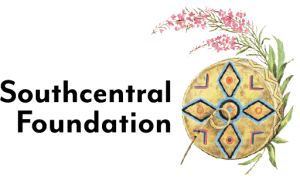Food and Nutrition: What You Need to Know for Healthy Aging
By Seth N. Anderson MS, RD

Why is good nutrition important for healthy aging?
Optimizing what, how, when, and why we eat is important for aging Elders. As Elders age, nutritional needs and bodies change. Fueling bodies properly helps to prevent the risk of falls, chronic diseases like diabetes, and nutrient deficiencies. Elders can enjoy daily activities with ease by having balanced meals and snacks while adding quality foods that ensure our bodies are nourished. Learn about body changes that occur in aging and some quality nutrients to include with meals and snacks that support aging well.
How Body Changes Affect Eating in Aging
• Body composition changes – decreased muscle while fat increases over time
• Sensory changes — smells and tastes tend to decrease
• Appetite decreases
• Feeling full from a smaller portion of food is common
• Breaking down food and taking in nutrients is decreased
• Issues with chewing and swallowing certain foods can occur
• Cooking and preparing meals can become difficult
Quality Nutrients to Consider
When meal planning, it is important to include the following quality nutrients. Protein – getting enough protein in meals and snacks can help to keep Elders strong. Some traditional foods rich in protein are salmon, caribou, moose, deer, shellfish, whale, and seal. Taking at least 800 IU a day of vitamin D supplements will help to keep bones strong. Calcium-rich foods such as dairy, beans, and fortified foods also support bone health. Alaskan foods rich in calcium are salmon, dandelion greens, stinging nettles, and currants. B vitamins are known to help keep energy levels up, and can be found in fruits, vegetables, beans, eggs, and meat to help stay healthy. Staying hydrated by drinking enough fluids and water is also important as we age; aim for at least 6.5 cups per day.
Food Insecurity and Hunger:
About 12% of the population in Alaska are food insecure, meaning they lack reliable access to a sufficient quantity of nutritious foods. Older adults are one of the vulnerable populations at risk for food insecurity. Inadequate nutrition increases the chance of poor health and wellbeing. The affordability of food, transportation, and the ability to cook and prepare food could be barriers leading to hunger and poor nutrition.
Southcentral Foundation has services to support Elder customer-owners. SCF Health Education assists with health coaching. Customer-owners can learn more about healthy activities and eating habits by participating in learning circles, such as Lose to Win. Community resource specialists are accessible during provider appointments to talk more about resources for which Elder customer-owners might be eligible. Organizations like Meals on Wheels and Food Bank of Alaska offer meal assistance to older adults.
For more information about food and nutrition to aid in aging well, contact
your provider to speak to a dietitian.


